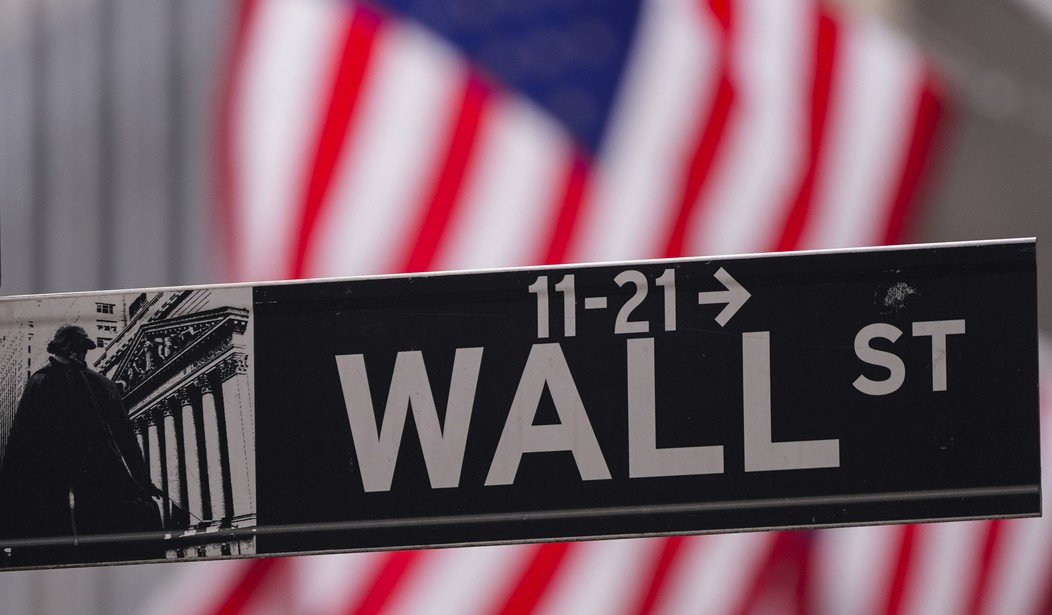Bidenomics in Action: Stock Market Tanking, Hiring Slowing Down
Bidenomics, it seems, is finally having an impact. But it's not what the Biden administration, or whoever is running things now that No-Show Joe appears to be disengaging, was hoping for. There are a couple of events here that aren't looking good, economy-wise.
First, the stock market selloff.
U.S. stocks are having the worst session since 2022 after a string of weak economic reports jolted investor fears that a recession may be brewing.
All three of the major benchmarks are down well over 2% with the Dow Jones Industrial Average, off nearly 1,000 points midday before trimming some losses. All 11 of the largest S&P sectors were also in the red.
The tech-heavy Nasdaq Composite is nearing a correction, down 10% from its peak reached in July of 18,647.
And:
Consumer discretionary stocks were down over 4% with declines in Walmart and Target as well as Amazon, which told investors that shoppers were turning more cautious in its latest earnings report.
None of these are good, as a major stock selloff will hurt many Americans right in their 401k and IRA accounts. But while many folks can weather a stock market correction — for a while — a sharp decrease in the rate of job creation has a more immediate impact, and that's happening, too.
Job growth slowed sharply in July and the unemployment rate rose to its highest level since 2021, the Labor Department reported. The data adds to evidence that a labor market whose strength was already fading could actually be on its way to weakness.
Hiring slowed to 114,000 jobs last month, the government said, missing expectations. The unemployment rate rose to 4.3%—its highest level in nearly three years, when the economy was still clawing its way back from the pandemic.
Stocks fell sharply after the data came out, reflecting investors’ renewed worries about an economic slowdown. Everything from banking stocks to small companies took big hits, Treasury yields mostly fell below 4% and the CBOE Volatility Index, Wall Street’s “fear gauge,” was on track for its highest close of the year.
In the interests of accuracy, let's note that the jobs figure represents a dropoff in the rate of growth, not an actual contraction of the employment market — but it was, it seems, still enough to contribute to the stock market sell-off.
Before we get too excited about how much a stock sell-off or even a recession could affect the election, let's take a deep breath and remember that today's sell-off may be offset by tomorrow's bargain-seeking, and the stock markets may well recover quickly; it's happened that way before. And there's one interesting tidbit hidden in the jobs report:
July’s job gains were concentrated in the healthcare sector, which added 55,000 jobs, construction, which added 25,000, and leisure and hospitality, which added 23,000. On the other side of the ledger, the information sector shed 20,000 jobs.
Health care is a growing field, and we can expect to see gains there, but what's interesting is the 25,000 in construction and 23,000 in leisure and hospitality. The former could be taken as a sign that things are looking up, and we'll get more information on that if we see residential and commercial building start to pick up. The latter is perhaps less of a sign; it is, after all, vacation season, when one would expect to see leisure and hospitality hiring pick up.
Even so, today's indicators point towards a slowing economy, and that's not good for the Harris campaign, as Joe Biden's economic policies and their results will be laid at the vice president's feet, just as they would have been laid at Joe Biden's; she was, after all, part of the administration, part of the policy team (or, at least, will be treated as though she were.) As Hank Williams Jr. once sang, "The interest is up and the stock market's down," and that may affect things in November.
It's early. But pay attention to the economy between now and then. There has never been a presidential administration more hostile to free enterprise and business than this one, and the markets and the economy, in general, may be showing it. And, as someone once famously said in presidential politics, "It's the economy, stupid."





Post a Comment